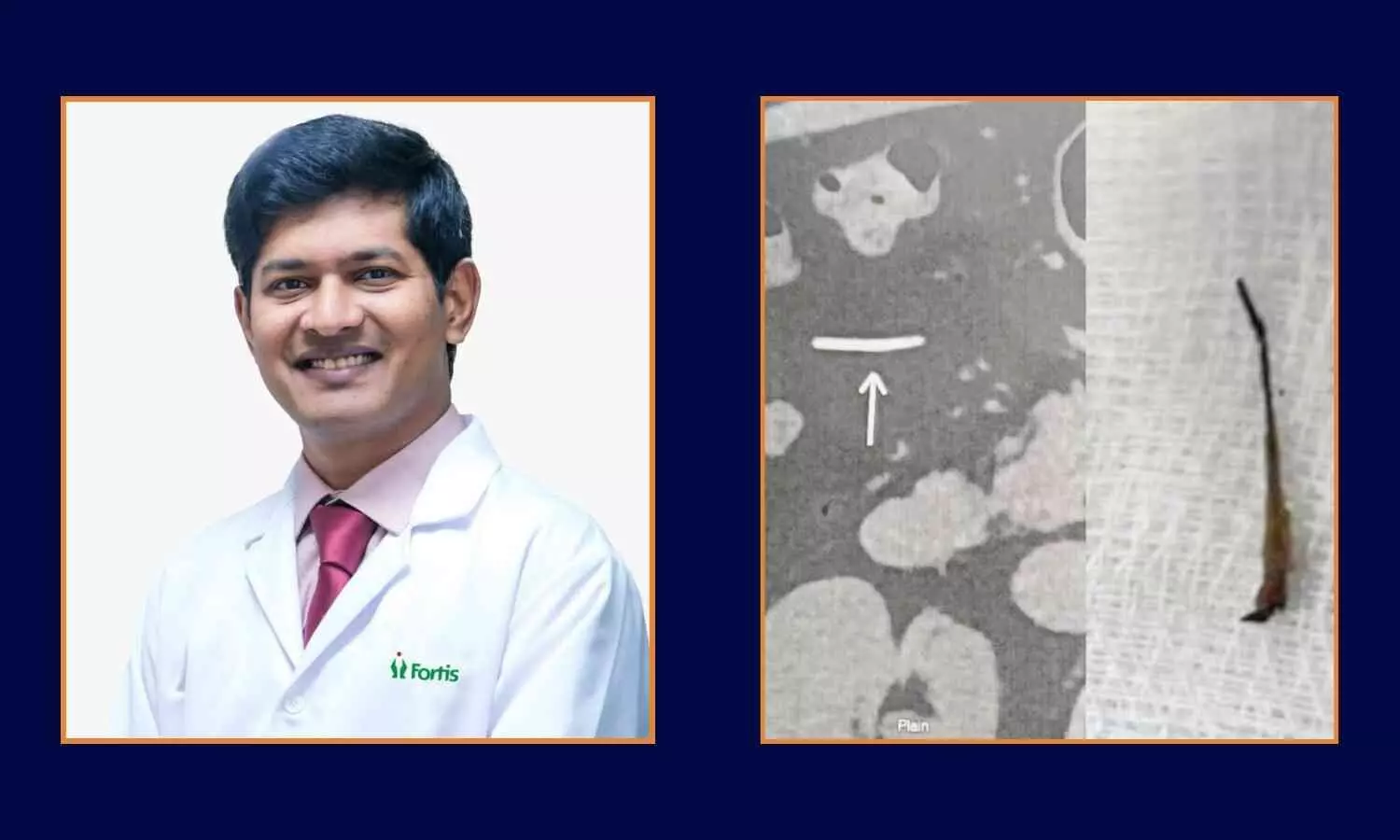5-Year-Old Fish Bone Removed from 61-Year-Old Man's Abdomen at Fortis, Nagarbhavi

Bengaluru: Fortis Hospital Nagarbhavi successfully removed a 2cm fish bone that had been lodged in a 61-year-old patient’s abdomen for over five years.
The patient, Rajesh (name changed), had undergone an endoscopic procedure at another hospital five years ago to remove a fish bone, but the recently discovered one had likely been missed.
During the same surgery, the medical team also treated the patient's gallbladder disease and repaired an umbilical hernia. The patient gradually recovered and was discharged three days later in stable condition.
Rajesh had endured chronic abdominal pain for years, despite undergoing various diagnostic tests and treatments that did not identify the underlying cause. A recent imaging scan revealed the fish bone embedded in the omentum, a tissue layer surrounding the abdominal organs, which had been missed during the initial endoscopic procedure.
Dr Pranav Honnavara Srinivasan, Consultant – Gastrointestinal Surgery at Fortis Hospital Nagarbhavi, performed the surgery using a minimally invasive laparoscopic approach, allowing for faster recovery.
“This case presented unique challenges due to the fish bone being lodged in the patient's abdomen for over five years, which had previously gone undetected. This case particularly is complex as we needed to not only address the foreign object but also treat concurrent conditions such as his gallbladder stones and an umbilical hernia in the same operation. By utilizing advanced laparoscopic techniques, we were able to perform multiple procedures simultaneously, ensuring a minimally invasive approach that significantly reduced the patient’s recovery time and risk of complications,” Dr. Pranav explained.
Akshay Oleti, Business Head of Fortis Hospitals, Bengaluru, commented, "At Fortis Hospitals, we are committed to providing world-class medical care tailored to meet the specific needs of each patient. Our skilled medical team, along with our focus on innovation, allows us to offer transformative treatment experiences. This case exemplifies our dedication to combining cutting-edge techniques with compassionate care, ensuring that patients not only receive the highest standard of treatment but also a seamless, supportive recovery process."
Foreign objects like fish bones, if not detected and removed promptly, can cause complications such as infection, internal bleeding, or damage to the abdominal organs.
In most cases, swallowed fish bones pass naturally through the digestive tract, but some may become lodged and require surgical intervention, especially when missed in initial evaluations.
This case highlights the importance of thorough follow-up assessments in patients with persistent symptoms, particularly in cases with a history of foreign body ingestion. The timely diagnosis and intervention were crucial to addressing the patient’s long-standing discomfort and preventing further complications.


